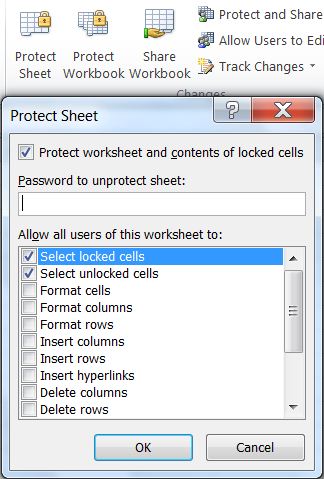5 Ways to Unlock Excel Sheet Passwords Easily

Have you ever come across an Excel spreadsheet that's locked with a password you don't know? Whether it's an inherited workbook or one you've accidentally secured too well, recovering or bypassing passwords can be essential for productivity. This post will delve into five proven methods to unlock Excel sheet passwords, ensuring you can access and edit your spreadsheets without a hitch.
Method 1: Password Recovery Software

If you’ve lost the password to your Excel file, password recovery software could be your first line of defense:
- Download and Install: Choose reputable software like PassFab for Excel or Excel Password Recovery Tool.
- Upload the File: Open the software and select your Excel file.
- Run Recovery: Click on ‘Start Recovery’ or similar option to initiate password cracking.
This method uses algorithms to guess or crack passwords, making it highly effective for simple to moderately complex passwords.
🛠 Note: Ensure you choose software that supports your Excel version for compatibility reasons.
Method 2: Utilizing Online Services

For those without access to recovery software, online password recovery services can be an alternative:
- Find a Trusted Service: Websites like LostMyPass or Excel Password Remover Online are options to consider.
- Upload File: Securely upload your Excel file to these platforms.
- Retrieve Results: After recovery, download the password or the unlocked file.
🔐 Note: Use services with encryption to keep your data secure.
Method 3: Macro in Visual Basic for Applications (VBA)

This method involves creating a VBA macro to bypass Excel’s protection:
- Open VBA Editor: Press Alt + F11 in Excel.
- Add a New Module: Click on Insert > Module.
- Input the Macro Code: Paste the following code:
Sub UnProtect() Dim i As Integer, j As Integer, k As Integer Dim l As Integer, m As Integer, n As Integer Dim txt As StringFor i = 65 To 66: For j = 65 To 66: For k = 65 To 66 For l = 65 To 66: For m = 65 To 66: For i1 = 32 To 126 txt = Chr(i) & Chr(j) & Chr(k) & Chr(l) & Chr(m) & Chr(i1) If txt = "password" Then MsgBox "Password is: " & txt Exit Sub End If Next: Next: Next: Next: Next: Next
End Sub
Please replace the “password” string with a common password you might have used. This macro will attempt common password combinations.
🧑💻 Note: This method works for older versions of Excel; for newer versions, more secure password hashing could make this less effective.
Method 4: Default Passcodes

Sometimes, Excel files might be protected with default or easily guessed passwords:
- Try Common Passwords: Passwords like ‘password’, ‘123456’, or ‘admin’ are often used by default.
- Excel Default Passwords: For some versions, passwords like ‘excel’, ‘password’, or ‘workbook’ might work.
These passwords can unlock some files without any software or complex methods.
Method 5: Modify the Excel File

This method involves changing the file extension and manipulating XML files to remove protection:
- Change File Extension: Rename your .xlsx file to .zip.
- Unzip the File: Extract the ZIP file.
- Locate Workbook.xml: Go to the \xl\ folder, find the Workbook.xml file.
- Edit Protection Tags: Use a text editor to change
- Re-Compress: Recompress the files back into a .zip and change the extension to .xlsx.
This method is effective for files with workbook protection rather than sheet protection.
💻 Note: Backup your file before attempting this method as incorrect modifications can corrupt the file.
In summary, unlocking Excel sheet passwords can be achieved through various methods, each suited to different scenarios. From software-based recovery to manual interventions, there’s a solution for every level of technical skill and situation. Remember to use these methods ethically and always have backups of your important files. Whether you choose a sophisticated software approach or a simple password guess, you now have the tools to regain access to your locked Excel spreadsheets.
Can using password recovery software damage my Excel file?

+
Reputable recovery software is designed to be safe and won’t damage your file during the password recovery process. However, ensure you have backups to prevent data loss from unforeseen issues.
Is it legal to unlock Excel files if I’m not the owner?

+
Unlocking Excel files you do not own or have permission to access could be considered illegal and unethical. Always ensure you have the right permissions before attempting to bypass protection.
What should I do if none of the methods work?

+
If password recovery methods fail, consider reaching out to the original creator for the password, or contact Microsoft Support for Excel issues. Also, ensure you’ve used the correct password case sensitivity, and if all else fails, consider recreating the file from scratch.